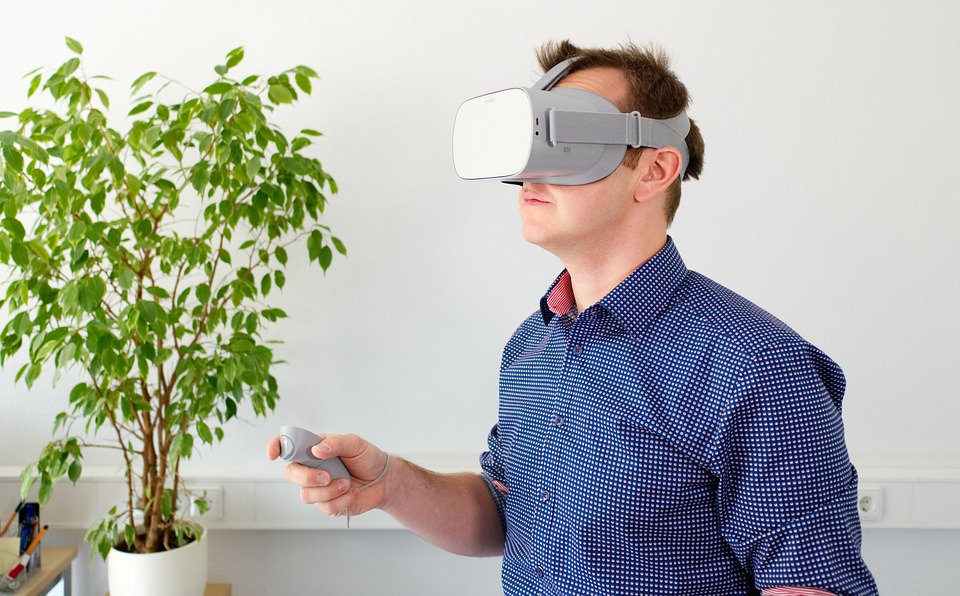Let’s be honest for a moment. Virtual Reality was the next big thing almost a decade ago, and brands like Oculus Rift or Quest 2 promised us that putting a headset on our skull would be the future of gaming.
While VR technology still enjoys wide success, with more than 7 million units sold in 2022, there is still something that keeps VR from becoming a worldwide standard for gaming. At first, it might be the headset’s price, ranging from $299 to $1,000 or the availability of games.
We concluded that VR doesn’t feel like reality quite yet, and that users can be prone to various issues like motion sickness. This problem is entirely due to the brain’s activity, and neuroscience can explain better than anyone else how VR is limited.
While there is room for improvement, VR Technology thrives, but not always in the gaming field. Will it be a tool that everyone will use soon? Video game apps and workplaces already use it, which should get even more significant in the next few years.
In many cases, games preempt VR tech, boasting how ready they are for it. For instance, while online casino operators are famed for offering games like the deal or no deal slot, within their game catalogues are live casino games. What this offers is gamers the chance to be organised and dealt by live dealers, resembling that of a land-based casino. And this is the key. The idea is that the online casino experience is more immersive in these games, that the live dealer treats you as if you are at the table. It’s easy to see how this plays into VR’s hands.
The Human Brain Is Quicker Than The Game
It is all a matter of milliseconds, science says. If you’ve ever experienced Virtual reality, you know that it can’t be an intense and immersive experience but also causes motion sickness.
The latency between your eyes is moving and the software processing your move can cause your brain to feel overwhelmed after watching VR. Some people are very prone to it, and some won’t have any issues after hours of gaming.
The bad news is that technology can’t replicate the human brain’s quickness, but the good news is that the gap is getting smaller every year. As we said earlier, it is a matter of milliseconds, and software has a hard time reducing that gap between what the eye perceives and what the software processes.
A Limiting Experience, Sometimes
Virtual reality has yet to convince the masses because several limitations make it less immersive. Gaming with wireless joysticks can be uncomfortable. Some of us can feel repelled by the clumsiness.
Some games are impressive, but it doesn’t feel real if it takes about half a minute to get a gun from its holster. Gaming with a regular controller feels more natural for beginners. People with disabilities will also feel deprived if they can’t move their heads and limbs properly.
Best Experiences With Virtual Reality
Now that we mentioned the apparent shortcomings of VR technology, some experiences are worth putting a headset on. Games like Resident 4, Alien Isolation or Half-Life Alyx are life-changing VR experiences.
Other software offers less intense but enjoyable experiences, such as board games like Catan. Also, good gaming is certainly not always a matter of realism, and some clunkiness in the controls doesn’t always put the player off.
Is Virtual Reality Going To Invade Our Lives?
Let’s remember that Virtual Reality dates from the early nineties. At the time, putting on a headset was a pixelated experience followed by nausea. Nowadays, VR tech has made so much progress, not only in the gaming field.
The booming of the VR industry is partially due to its workplace uses, where employees can learn to use machinery with a VR headset. This practice is getting bigger every day, and many employees are satisfied with the added value of this form of training.
The metaverse, a term popularized by Facebook CEO Mark Zuckerberg, will also be a big thing in the decade. The ability to interact in a virtual world with real people hasn’t entirely made its way into the mainstream. When it does, Virtual Reality will let us attend shows, participate in reunions and even get married with a headset.










Add Comment